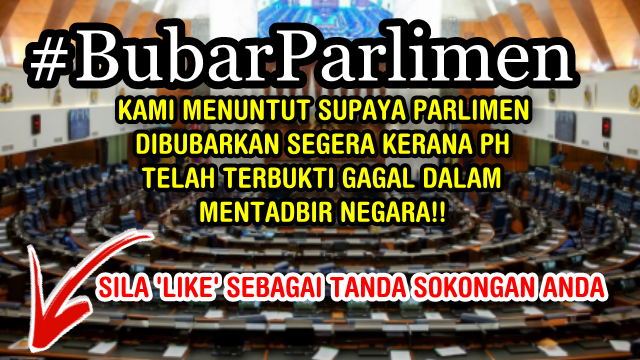
Sexuality, Religion and Ethics
Religion aims at producing not just good citizens, but above all, good persons, who by observing religious instructions, give result to good society, good nation.
THE Seksualiti Merdeka (SM) festival has virtually ground to a halt with the blanket ban on its activities by the authorities. Its organisers, comprising professional bodies and NGOs, can no longer openly proceed with their programmes like talks, workshops, book launches, art exhibition, performances, etc.
The SM campaign, or “Sexuality Independence”, held annually since 2008, seeks to promote awareness as well as celebrate the human rights of people of diverse sexual orientations and gender identities – lesbian, gay, bisexual, transgender (LGBT), intersex and asexual.
As human beings, they enjoy the freedom to engage and indulge in any activities they like.
Upholding the theme “Queer without fear”, SM calls for better protection against discrimination or persecution inflicted on these groups by virtue of their sexual inclinations.
Its proponents believe that all Malaysians, in fact all mankind, have the right to live and love without fear.
This movement is actually a manifestation of a secular humanistic ideology. As a body of ideas, this philosophy will never die.
Through advancements in ICT and the new social media, its worldview will spread, gain momentum, and at times its various faces will surface here and there. This phenomenon is a threat to be reckoned with.
In terms of confrontation, most of the doctrines and practices of this movement, if not all, clash head-on, firstly, with religious teachings, especially Islam. Secondly, they are against ethics and morality, and thirdly, they go into conflict with rules and law.
One may observe that the SM drive is camouflaged under the banner of human rights. The most important human rights principle involved here is freedom. The secular human rights principles, as embodied in the Universal Declaration of Human Rights (UDHR) 1948, rejects God, i.e. the role of religion, and guarantees absolute freedom to man.
Islam does not grant total freedom to man. Freedom comes with certain prior duties and responsibilities.
Islam has coined the term ikhtiyar for freedom. Its root word is khayr, meaning good, correct, beneficial and right things. So, if one applies one’s reason to choose something evil, wrong, or harmful, that’s not freedom, but destruction, injustice.
Religion teaches that reason alone is not sufficient to determine good and evil.
It requires a certain form of endorsement or approval from a higher authority.
In many religions, this determination is derived from the words of God or gods. In Islam, this is revelation (wahy).
Religion also does not refer only to personal or private bondage or relationship with God. True religion covers and governs all aspects of a human’s life, in both the private and public domains. If one’s relationship with God is excellent, its spill-over effects will necessarily appear to the external sphere as well.
Religion, through education, aims at producing not just good citizens, but above all, good persons, who by observing religious instructions, give result to good society, good nation.
Having said all the above, one may wonder why religion continues to be regarded as part of the problem, not part of the solution, in enhancing human rights and interests.
One possible explanation suggests that people are becoming more overwhelmed by secularism. They want to sever ties with God and religion. To them, these elements restrict their rapid progress and development.
Instead, they believe in the supremacy of reason to the effect that man is the sole measure of all things. Therefore, they hail the declaration by Friedrich Nietzsche, the 19th century German philosopher, that God is dead. They have killed Him!
Next, religion entails ethics and morality. There is no real value system outside religion.
When the advocates of SM attempt to recognise the lewd activities of LGBT as legitimate acts, they crumble the very foundations of both.
It’s equally perplexing to note that SM is championed by figures who are learned in law.
But I would say that they do not act according to their knowledge, or they have developed wrong interpretations.
They certainly know that our Federal Constitution recognises a number of human rights as fundamental liberties of all citizens.
But in the exercise of these liberties, Article 10, for example, clearly spells out that the right to freedom of speech and expression, or the right to assemble peacefully, must not be carried out in the manner that may threaten the security of the federation, public order or morality.
If it does jeopardise security, peaceful living and ethics, the authorities may impose measures or laws to control such activity. As the supreme law of the land, any inferior statutory provisions that go against any constitutional provision must be considered null and void.
In addition, Section 4(4) of the Human Rights Commission of Malaysia Act 1999 prescribes that reference may be made to UDHR 1948, but it must be done “to the extent that it is not inconsistent with the Federal Constitution”.
The problem is that the organisers of SM view the international documents on human rights with greater respect than their own national Constitution, as if these are their holy scriptures.
They seem to ignore other statutes being enforced in this country. Section 377 of the Penal Code, for instance, prohibits any sexual action that goes against the order of nature.
We may also argue that if we were to allow SM to proceed, that would contradict all five principles of the Rukun Negara: belief in God, loyalty to the King and country, the supremacy of the Constitution, the rule of law and courtesy and morality.
With all the above arguments, we may safely conclude that there is no room for any sound human being to agree with the SM organisers.
All their objectives and actions are inconsistent with religious teachings, ethics and morality, law of nature, the Federal Constitution and other Acts of Parliament.
We may enjoy life, but let’s do it with responsibility, observing the aforementioned parameters. Freedom has its limitations.
We are propagating the freedom of religion, not freedom from religion.
Thank God we live in a country where religious awareness and ethical consciousness are still running deep in our society and can be found in abundance.
The battle between good and evil must continue, and the former must prevail.
IKIM VIEWS
By DR WAN AZHAR WAN AHMAD
Senior Fellow / Director
Centre for the Study of Syariah, Law and Politics
-theStar

Comments